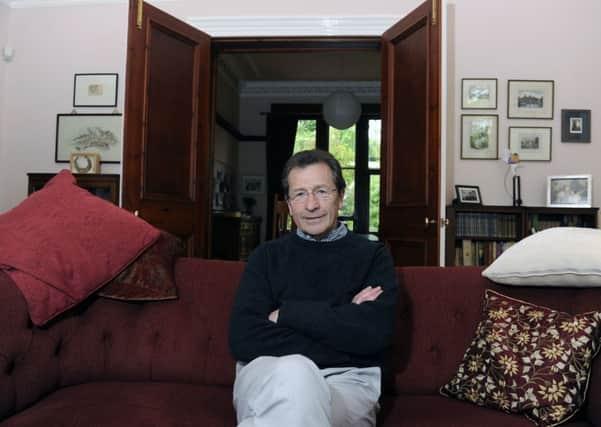Universities jointly research rheumatoid arthritis


The £2.5 million “virtual research centre” will see scientists from Glasgow University team up with others in Newcastle and Birmingham to develop new approaches to the care of people with rheumatoid arthritis.
The disease, which can affect all ages, is caused when the immune system attacks itself and, while drug treatments work for some, others are left with crippling symptoms.
Advertisement
Hide AdAdvertisement
Hide AdThe Rheumatoid Arthritis Pathogenesis Centre for Excellence (Race) will be launched in Glasgow tomorrow by Olympic rower Katherine Grainger.
Centre head Professor Iain MacInnes said they hoped to improve treatment and, eventually, even prevent the disease developing.
To start with, he said the researchers would try to find out more about why the disease occurs and why some patients get better and others do not.
They will then go on to look at variations in patients’ disease as part of efforts to make sure they get the best available treatments, personalising care.
“We are hoping to use our existing medicines to treat rheumatoid arthritis better, but we are also hoping to make new medicines,” Prof MacInnes said. “We are in the business of finding new targets that will eventually become new medicines.
“In the long-term, what we are trying to do is get as many people with the disease as possible into remission.”
Prof MacInnes said around one in five patients respond to treatment so were in remission.
“A larger number of patients will feel better with treatments, but they are not in that really good place.
Advertisement
Hide AdAdvertisement
Hide Ad“We would hope within a five-year period we would be significantly increasing that proportion of patients in whom we have achieved a deep remission.”
Prof MacInnes added: “One of the things the centre is very focused on, looking over a ten-year horizon, is finding factors to help us predict who has the very earliest forms of the disease.
“There is a new concept that people who develop the disease have a phase before the development where their immune system is out of kilter but they don’t yet know it.”
He said this raised the possibility that molecules from the immune system are not working properly. If detected, this could lead to preventive treatment.
“Could we find people who are going to develop the disease and try to prevent that? That is one of our ambitions,” he said.
Rheumatoid arthritis can affect children through to people in old age, causing painful inflammation in the joints and also affecting the body’s internal organs, leading to chronic pain and fatigue.
The disease also increases the risk of heart disease, depression and osteoporosis. It affects more than 400,000 people across the UK.
Together the universities of Glasgow, Newcastle and Birmingham have committed to spending an extra £4m for their collaboration in the next five years.
Professor Alan Silman, medical director at Arthritis Research UK, said: “We are very excited that this new centre can bring us closer to finding a cure.”